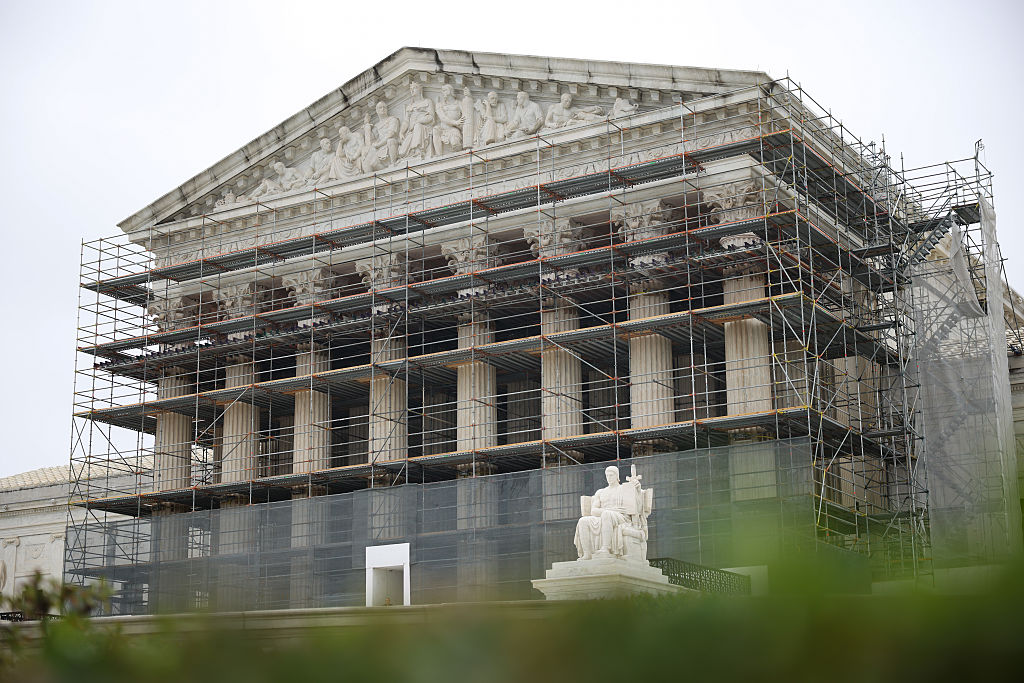South Carolina asked the Supreme Court to pause an order by a federal appeals courtroom that requires a public faculty within the state to permit a transgender boy to make use of the boys’ toilet whereas he challenges a state law that requires college students to make use of loos based mostly on their organic intercourse at beginning. Describing the varsity district as “now caught between an inconceivable rock and laborious place,” the state cited the Supreme Courtroom’s latest resolution in United States v. Skrmetti, by which six justices upheld Tennessee’s ban on sure types of medical therapies for transgender minors, as the idea to place the ruling by the U.S. Courtroom of Appeals for the 4th Circuit on maintain for now.
The state’s request, which was distributed to reporters on Thursday, is an early check of the broader impression of the courtroom’s 6-3 decision in Skrmetti. Though South Carolina’s software got here to the justices on the courtroom’s emergency docket, one of many elements that the justices contemplate when deciding whether or not to grant non permanent reduction is the chance that the litigant in search of the keep will in the end prevail on the deserves of the dispute.
The scholar, recognized within the litigation solely as John Doe, filed the lawsuit final yr. Doe alleged that the lavatory legislation violates the Structure’s equal safety clause, which typically prohibits the federal government from treating individuals in an analogous state of affairs in another way, in addition to Title IX of the Civil Rights Act of 1964, a federal civil rights legislation that bars sex-based discrimination in instructional packages that obtain federal monetary help.
A federal district courtroom in South Carolina put the case on maintain after the Supreme Courtroom agreed to take up West Virginia v. B.P.J., by which the 4th Circuit had struck down a state legislation banning participation by transgender ladies on ladies’ sports activities groups.
However on Aug. 12, the 4th Circuit ordered the varsity district to permit Doe to make use of the boys’ toilet whereas litigation continues. The courtroom of appeals relied by itself 2020 resolution in Grimm v. Gloucester County College Board, by which it held {that a} Virginia faculty’s refusal to permit a transgender boy to make use of the boys’ restroom violated the equal safety clause and Title IX as a result of it discriminated “on the idea of intercourse.”
Calling the ruling in Grimm a “discredited outlier,” South Carolina got here to the Supreme Courtroom on Thursday, asking the justices to intervene. Skrmetti, South Carolina Deputy Solicitor Basic Joseph Spate argued, “is irreconcilable with Grimm.” The Supreme Courtroom in Skrmetti utilized a much less stringent normal of overview (rational foundation overview) than in Grimm, Spate burdened, and it “rejected Grimm‘s view of discrimination ‘on the idea of intercourse.’”
Furthermore, Spate contended, until the Supreme Courtroom steps in, “the State, the varsity district, and its college students are struggling precise, ongoing, materials harms.” Against this, he wrote, if the 4th Circuit’s order have been blocked, Doe would have “entry to multi-occupancy ladies’ restrooms at college,” in addition to “the lodging of a single-stall restroom.”
Posted in Emergency appeals and applications, Featured
Instances: South Carolina v. Doe
Beneficial Quotation:
Amy Howe,
Transgender scholar’s toilet case involves the Supreme Courtroom on the emergency docket,
SCOTUSblog (Aug. 28, 2025, 5:10 PM),
https://www.scotusblog.com/2025/08/transgender-student-bathroom-case-comes-to-supreme-court-on-emergency-docket/
